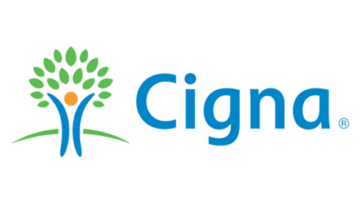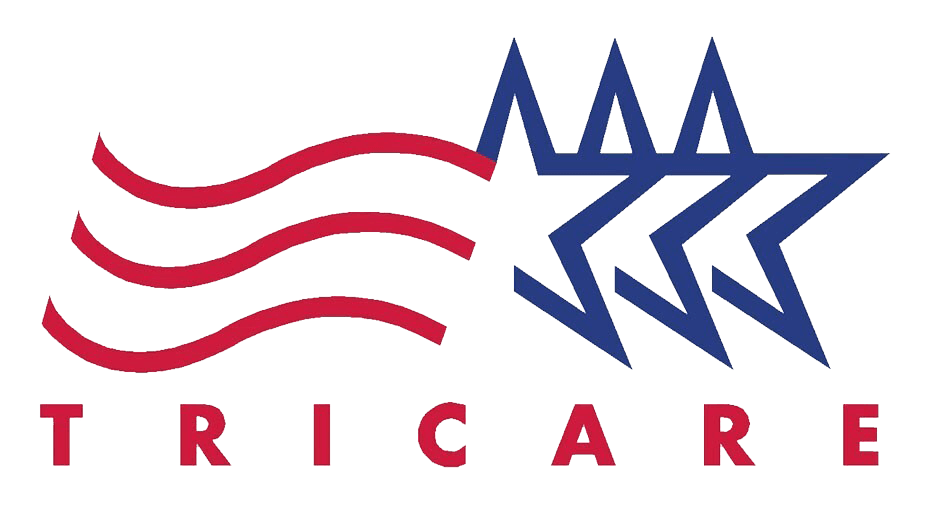Navigating the Road to Recovery: How to Choose the Best BPD Treatment Center
Borderline Personality Disorder (BPD) is a complex and challenging mental health condition affecting 1.6% of adults in the United States. Characterized by difficulties in regulating emotions, impulsive behaviors, and unstable relationships, BPD can significantly impact an individual’s daily life, making it difficult to maintain jobs or relationships. However, with proper treatment and support, individuals with BPD can learn to manage their symptoms and live fulfilling lives. Choosing the right treatment center is crucial for individuals seeking recovery from BPD. In this blog post, we will explore what you need to consider when selecting the best BPD treatment center for yourself or a loved one.
Understanding BPD Treatment
Before exploring how to select the best BPD treatment center, it is crucial to understand the various treatment options available for this condition. BPD is often marked by intense emotions, unstable relationships, and challenges related to self-image. Numerous therapeutic approaches can assist individuals in managing their symptoms and enhancing their overall well-being. Among the common treatment options is Dialectical Behavior Therapy (DBT), which emphasizes the development of coping skills and emotional regulation. Additionally, Cognitive Behavioral Therapy (CBT) aims to help individuals confront and modify negative thought patterns. Other potential treatments include medication to alleviate specific symptoms, group therapy for social support, and holistic methods such as mindfulness and art therapy.
Psychotherapy
Psychotherapy, commonly known as talk therapy, plays a vital role in choosing the best BPD treatment center. This therapeutic approach typically involves regular sessions with a qualified mental health professional who guides open discussions about thoughts, feelings, and behaviors contributing to emotional distress. The primary aim of psychotherapy is to help individuals gain insight into their emotional struggles, develop effective coping strategies, and enhance their interpersonal relationships. Various psychotherapy modalities have proven particularly beneficial for those with BPD. For example, Dialectical Behavior Therapy (DBT) teaches essential skills for emotional regulation and interpersonal effectiveness, while Cognitive Behavioral Therapy (CBT) assists individuals in identifying and altering negative thought patterns. Additionally, Schema-Focused Therapy addresses deep-rooted emotional and cognitive patterns that can impact behavior.
Medications
Medications may be prescribed to address specific symptoms of Borderline Personality Disorder (BPD), including severe mood swings, chronic depression, and debilitating anxiety. These can encompass antidepressants, mood stabilizers, and antipsychotics, all aimed at reducing the emotional turmoil that individuals with BPD often face. However, it is essential to understand that medication alone is not deemed a sufficient treatment for BPD. Instead, it is typically used in conjunction with psychotherapy, such as Dialectical Behavior Therapy (DBT) or Cognitive Behavioral Therapy (CBT), to create a more holistic approach to care. This combined treatment strategy equips individuals with coping skills, enhances emotional regulation, and improves interpersonal relationships, ultimately leading to more favorable overall outcomes.
Inpatient Treatment
Individuals with severe symptoms of Borderline Personality Disorder (BPD) may sometimes require intensive treatment in a hospital or residential facility. This comprehensive care offers round-the-clock support from mental health professionals, ensuring assistance is available at any moment. Such facilities typically provide a structured environment featuring therapeutic programs, including individual and group therapy, medication management, and skills training. This holistic approach is vital for those struggling to manage their symptoms, allowing them to concentrate on recovery within a supportive community that understands their challenges. By offering a safe and nurturing space, these treatment options empower individuals to develop coping strategies and emotional regulation skills essential for long-term healing.
Specialization and Expertise
Borderline Personality Disorder (BPD) is a complex condition that requires specialized and experienced care to effectively manage its symptoms and enhance quality of life. When searching for a treatment facility, it’s essential to thoroughly investigate their specialization and expertise in treating BPD. This includes evaluating the specific therapies they offer, such as Dialectical Behavior Therapy (DBT) or Cognitive Behavioral Therapy (CBT), as well as their success rates with BPD patients. Additionally, consider the qualifications and experience of their staff, particularly mental health professionals who understand the intricacies of the disorder. The best BPD treatment center possess a deeper insight into the unique challenges associated with the condition and are equipped with more effective, tailored treatment protocols. This targeted approach can lead to improved outcomes and foster a more supportive environment for recovery.
Treatment Approach
When seeking help for Borderline Personality Disorder (BPD), it’s essential to acknowledge that treatment centers may employ diverse approaches. Some facilities focus on individual therapy sessions, providing personalized attention to address the unique challenges each patient faces. Conversely, others may emphasize group therapy, offering a supportive environment for individuals to connect with those who share similar experiences, thereby fostering community and understanding. Many centers effectively combine both individual and group therapy to create a comprehensive treatment strategy. Before selecting a treatment center, it is crucial to identify which approach best suits your needs. If you thrive in group settings and benefit from peer support, a center with a strong emphasis on group therapy might be the perfect fit.
Location and Environment
The location and environment of a treatment center play a crucial role in the recovery process, significantly affecting both emotional and psychological well-being. Some individuals may find solace in a secluded, tranquil setting surrounded by nature, where the soothing sounds of birds and rustling leaves create a serene atmosphere that fosters healing. This natural backdrop encourages relaxation and introspection, allowing for a deeper connection with oneself throughout the recovery journey. Conversely, others might feel more at ease in an urban environment that offers convenient access to essential resources, such as support groups, recreational activities, and therapeutic services. The vibrant city life can provide opportunities for social integration, enabling individuals to connect with others on similar paths and cultivating a strong sense of community and support.
Length of Treatment Program
Treatment for Borderline Personality Disorder can be a complex and time-consuming journey for individuals seeking help. The duration of programs varies widely between treatment centers, ranging from weeks to months long. It’s essential to have a clear understanding of a program’s length before making a commitment. This decision can significantly impact various aspects of your life, including work obligations and family responsibilities. It also affects social interactions and your ability to maintain connections during treatment and recovery periods. Some facilities may offer short-term intensive sessions focused on rapid stabilization and skill development techniques.
Others provide long-term residential care that allows for a deeper exploration of emotional issues effectively. Long-term care fosters a supportive community among peers going through similar struggles and experiences. Additionally, it’s important to consider the treatment modalities available; some centers may emphasize psychotherapy approaches. Others may incorporate medication management or group therapy into their approach for comprehensive care and support. Therefore, evaluating your unique needs, lifestyle, and support system is crucial when selecting the right program.

Seeking Recommendations and Doing Research
When searching for the best BPD treatment center reaching out to mental health professionals or trusted individuals with relevant experience can be incredibly beneficial. These experts, including therapists, counselors, and doctors, possess valuable insights and can offer recommendations based on their extensive knowledge in treating individuals with BPD. Their firsthand experiences enable them to direct you to facilities with a proven track record of success. Moreover, conducting online research on various treatment centers can significantly enhance your decision-making process. Take the time to gather detailed information about their specific services, treatment approaches, success rates, and overall reputation within the mental health community. This comprehensive approach will help you make an informed choice for your treatment journey.
The Importance of Individualized Treatment Plans
Every individual’s experience with Borderline Personality Disorder (BPD) is distinct, encompassing a diverse array of challenges and situations. Consequently, the best BPD treatment center plans must be carefully customized to address each person’s unique needs. When selecting a treatment center, it is vital to choose one that emphasizes personalized plans. Choose centers that emphasize the creation of personalized plans rather than one-size-fits-all approaches for treatment. A tailored treatment strategy not only addresses your specific challenges but also capitalizes on strengths. It capitalizes on your personal strengths, fostering a more effective and supportive journey toward recovery. This personalized approach can incorporate various therapeutic modalities, such as dialectical behavior therapy and cognitive-behavioral therapy. These include DBT, CBT, and other evidence-based practices, all designed to help you develop skills. They help you develop essential coping skills, enhance emotional regulation, and improve interpersonal relationships for lasting recovery.
Insurance and Financial Considerations
Treating Borderline Personality Disorder (BPD) can be expensive, so it’s crucial to assess the financial implications when selecting a treatment center. Start by confirming whether the center accepts your insurance, as this can significantly impact your overall costs. Inquire about potential out-of-pocket expenses, including co-pays and deductibles, which can add up quickly. Many treatment centers are open about their fees and may provide financial assistance programs or sliding scale fees based on income, making treatment more accessible for those who qualify. It’s prudent to directly contact the center to discuss payment options or available scholarships that could alleviate your financial burden.
Visiting Prospective Treatment Centers
If possible, make an effort to visit the treatment centers you are considering. A firsthand visit not only allows you to evaluate the facilities but also presents a valuable opportunity to meet the staff and get a true sense of the overall environment. During your visit, pay attention to the cleanliness and organization of the space, as these aspects can greatly influence your comfort and well-being. Take note of the atmosphere—does it feel welcoming and supportive? As you walk through the center, consider how comfortable you feel; your comfort is crucial in determining whether this is the right place for you. Engaging in conversations with the staff can provide insights into their professionalism, experience, and dedication to patient care. This interaction can help you assess their approach to treatment and whether it aligns with your personal needs and expectations. Ultimately, these visits can be instrumental in making an informed decision about your treatment options.
Considering Family Involvement
Family support is crucial in the recovery journey for individuals with Borderline Personality Disorder (BPD). The emotional challenges of BPD can be daunting, making a strong support system essential for healing. Many treatment centers recognize the importance of involving loved ones and offer specialized family therapy sessions. These sessions create a safe space for family members to express their feelings and learn how to better support their loved one. If family involvement is a priority for you, seek out centers that actively promote and facilitate this aspect of care. Family therapy not only improves communication and understanding among family members but also provides vital education about BPD and its effects.
Support for Co-occurring Disorders
Many individuals with Borderline Personality Disorder (BPD) also face co-occurring disorders such as depression, anxiety, and substance abuse. These overlapping conditions can complicate the treatment process and significantly affect a person’s overall well-being. As a result, it is vital to choose a treatment center that specializes in managing BPD. Choose centers also equipped to address these co-occurring disorders concurrently for comprehensive care and treatment. Integrated treatment programs that adopt a holistic approach address all aspects of an individual’s mental health. These holistic approaches can yield more effective outcomes for individuals struggling with BPD and co-occurring disorders. By treating both BPD and co-occurring conditions simultaneously, individuals are likely to experience thorough recovery. This enables them to cultivate healthier coping mechanisms, enhance interpersonal skills, and improve their quality of life. Such comprehensive care is essential for promoting long-term stability and emotional resilience.
Preparing for the Transition Back Home
Transitioning from a treatment center back to everyday life can be a daunting challenge for individuals. Individuals often face the complexities of reintegrating into their daily routines and environments after treatment ends. A good treatment center will not only focus on the immediate recovery process but also provide support. They will also provide comprehensive support and resources to facilitate this crucial transition back to life. When searching for a treatment center, it’s important to look for those offering robust aftercare programs. These programs are designed to help individuals navigate their new realities and maintain sobriety successfully. These programs may include ongoing therapy sessions tailored to address any lingering issues from treatment completion. They also include life skills training and the establishment of healthy routines for lasting recovery. Additionally, support groups can play a vital role in this phase, as they create community. They create a sense of community and understanding among peers who share similar experiences and challenges.
Conclusion
Recovering from BPD is a challenging but achievable journey with the right support and resources. Choosing the best BPD treatment center is an essential step towards recovery, and it requires careful consideration of various factors. By understanding the types of treatments available, researching different facilities, and seeking recommendations from trusted sources, you can find a treatment center that meets your needs and provides you with the support you need on your road to recovery. Remember that recovery is possible, and with proper treatment and support, you or your loved one can learn to manage BPD symptoms and live a fulfilling life. If you or someone you know is struggling with BPD, don’t hesitate to reach out to us today by calling (512) 601-5407 or clicking Omega Recovery. Recovery is a journey, not a destination, and with dedication, perseverance, and the right support system, individuals with BPD can lead happy and healthy lives. There is always hope for recovery, and you are not alone in this journey.







